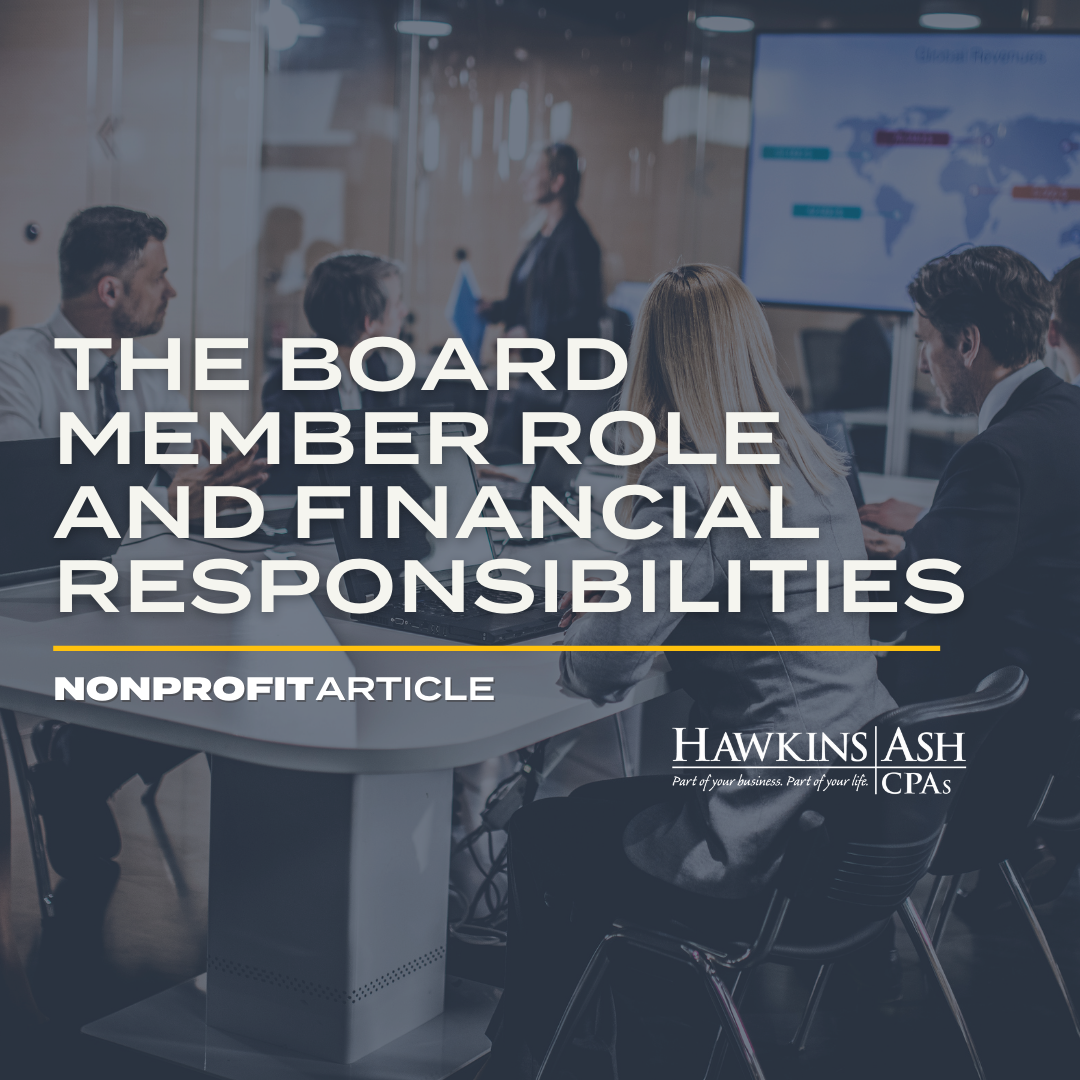A board of directors or trustees is the source of governance and accountability for any nonprofit organization. Board members provide appropriate oversight of an organization and ensure the organization is consistently moving towards its mission. Boards generally consist of many individuals with varied and diverse backgrounds who share the same passion for the organization and want to share their expertise with the organization. Although being part of a board can be a deeply moving and rewarding experience, it also comes with significant responsibility.
Boards have legally mandated fiduciary duties to their organizations. These duties describe the manner in which board members are required to carry out their roles and responsibilities. The fiduciary duties are obedience, care and loyalty.
-
- Duty of Obedience: The board must ensure the organization is obedient to its central purposes as described in its articles of incorporation and mission.
- Duty of Care: The boards must be knowledgeable of all reasonably available information before taking action, and then act with prudence and care appropriate under the circumstances.
- Duty of Loyalty: The board must discharge duties unselfishly, to the benefit of the organization only, and disclose potential conflicts of interest.
Boards have three essential roles (the HOW of governance – the things the board needs to do):
-
- Policy formation
- Decision making
- Oversight
Boards have five oversight responsibilities (the WHAT of governance – the things that require the board’s oversight):
-
- Mission and strategic planning oversight
- Quality oversight
- Executive management oversight
- Financial oversight
- Board effectiveness
This article will focus on a board’s financial oversight responsibility.
The Board Oversees the Organization’s Financial Affairs
Managing the organization’s day-to- day finances is the responsibility of executive management; however, the board has ultimate responsibility for overseeing the financial affairs of the organization. The board’s fiduciary responsibility is to protect the organization’s financial status so it can meet its obligations – economic and social – to its communities. Meeting these obligations typically involves a variety of finance-related tasks. Not all board members need to have a strong financial background; however, they should be able to understand basic terminology along with review and understand the financial statements and be comfortable asking questions about the financial health of the organization.
Board financial oversight also encompasses establishing and reviewing financial controls. Areas the board should look at are proper segregation of duties. This is a fraud and material misstatement prevention measure that requires different employees be responsible for the various steps in the areas of cash receipts, cash disbursements and payroll processes to mitigate risk. An example of a control to help mitigate weaknesses in segregation of duties is requiring two individuals to sign checks (one of those individuals being a board member who can review and approve cash disbursements before issuance). For many organizations, small staffing levels prohibit an ideal segregation of duties environment; which makes the financial oversight role even more important as a board responsibility.
The COVID pandemic changed the financial landscape for many non-profit organizations and financial sustainability should be at the forefront of all board decisions. In addition to reviewing the organization’s current operations to budget, the board should look beyond the current financial performance to ensure the organization has enough liquid assets to meet future needs. This could involve creating a financial reserve policy which sets aside enough funds to cover a certain number of months’ operating expenses (payroll, rent, utilities, insurance, etc.). A best practice would be to maintain six to nine months of operating expenses in this reserve fund.
In performing its oversight role, the board helps ensure the organization has adequate resources available to pursue its mission. Being on a board can be very rewarding, but it is something that should be taken seriously.
If you have any questions in regards to board member responsibilities, please contact your Hawkins Ash CPAs professional.





